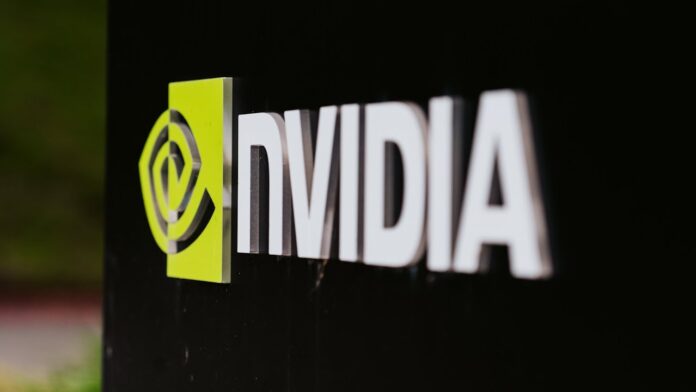The rapid decline follows CEO’s share sales and growing concerns over the AI investment bubble
Nvidia, the California-based GPU maker, has witnessed a dramatic $500 billion drop in its market capitalization, sparking concerns about its valuation and the stability of the AI market it supports. This significant loss follows Nvidia’s recent surge to become the world’s most valuable company, overtaking Microsoft and Apple with a market cap of $3.335 trillion. Now, Nvidia has slipped back to third place after losing about 15% of its peak value in just a few days.
The downturn began after disclosures that CEO Jensen Huang sold nearly $95 million worth of shares just as Nvidia reached its peak valuation. While these trades were part of a previously scheduled plan, the timing led to speculation that Huang believed Nvidia’s stock had reached its zenith.
Nvidia’s top executives had also sold substantial portions of their holdings earlier in the month, ahead of a planned 10-for-1 stock split. This selloff has raised eyebrows among traders and investors, who pointed out that a rapid rise in stock value often makes it vulnerable to sudden declines.
Drawing parallels to the dot-com bubble burst at the turn of the millennium, some commentators have likened Nvidia’s current situation to that of networking giant Cisco, which briefly held the title of the world’s most valuable company before losing 80% of its value as telecom operators slashed spending. Bloomberg’s Ashlee Vance suggested on Twitter that Nvidia’s role in the AI boom might mirror Sun Microsystems’ during the dotcom era, implying that Nvidia’s dominance might be challenged within a few years if a superior chip is developed.
The AI industry’s heavy reliance on Nvidia is another factor contributing to market uncertainty. Despite substantial investments—Sequoia Capital estimates $50 billion was spent on Nvidia chips for AI model training last year—the return has been relatively modest, with only $3 billion in revenue generated so far. This discrepancy raises questions about the long-term profitability of AI ventures.
Nvidia’s continued success hinges on the assumption that the vast investments in AI will eventually pay off. However, the timeline and magnitude of these returns remain uncertain. Meta, for instance, experienced a similar stock decline earlier this year after CEO Mark Zuckerberg acknowledged that it might take years before their AI initiatives become profitable.
Speculation about an AI market bubble is growing. Forbes noted that the substantial outperformance of AI-related stocks relative to the broader market has reignited talk of bubble-like conditions. Columnists on The Hill have echoed these concerns, pointing to massive cash burns, poorly defined business models, and sky-high valuations as signs of a potential bubble.
Despite these challenges, some investors remain optimistic. Fool.com highlighted Nvidia’s dominant position in the AI chip market, underpinned by its CUDA software platform, which has become the industry standard. Wall Street analysts project Nvidia will generate $120 billion in sales this year, double the previous year’s revenue.
Experts like Manoj Sukumaran from Omdia believe demand for Nvidia’s GPUs will persist, especially for AI training. Custom ASIC development and competition from rivals lack the features necessary to rival Nvidia’s training clusters and optimized software stack, suggesting Nvidia will continue to grow its market share in data center computing.
Vlad Galabov, Head of Cloud and Data Center Research at Omdia, noted that Nvidia’s recent stock rebound indicates investors’ nerves are understandable given its tenfold increase since October 2022. While the AI market’s future remains uncertain, Nvidia’s established position and ongoing demand for its technology suggest it will maintain strong revenue growth.
Analysis:
Political Perspective: Nvidia’s market fluctuations have significant political implications. As AI technology becomes increasingly integral to national security and economic competitiveness, governments are closely monitoring leading companies like Nvidia. The U.S. government’s scrutiny of AI investments reflects concerns about technological dominance and dependency on key players. Nvidia’s market volatility could influence policy decisions on AI research funding, regulation, and international tech collaboration, potentially reshaping the global tech landscape.
Social Perspective: The rise and fall of Nvidia’s market value highlight broader societal debates about the ethical implications of AI technology. The significant investment in AI and its applications raises questions about job displacement, privacy, and the potential misuse of AI systems. Society’s trust in AI companies is crucial, and Nvidia’s transparency and ethical practices will play a significant role in shaping public perception and acceptance of AI technologies.
Racial Perspective: AI development has far-reaching implications for racial equality and justice. The technologies powered by Nvidia’s GPUs are used in various applications, including law enforcement and hiring processes, which can inadvertently perpetuate biases. Ensuring diversity and fairness in AI development and deployment is essential. Nvidia’s role in the AI ecosystem places it at the forefront of efforts to address these challenges and promote inclusive practices.
Gender Perspective: The gender dynamics within the tech industry are also relevant to Nvidia’s market position. AI and tech sectors have historically faced criticism for gender imbalances and lack of representation. Nvidia’s leadership and policies can influence gender equity in the industry. Promoting diversity and supporting initiatives to increase female representation in tech and AI roles will be crucial for fostering a more inclusive and innovative environment.
Economic Perspective: Economically, Nvidia’s market volatility underscores the speculative nature of high-growth tech sectors. The AI market’s potential has driven massive investments, but the disparity between spending and revenue generation raises concerns about sustainability. Nvidia’s continued dominance in AI chips is a double-edged sword: while it solidifies its market position, it also makes the company vulnerable to market corrections and technological disruptions. Investors and analysts must balance optimism with caution, considering both the transformative potential of AI and the risks of overvaluation.
Nvidia’s current situation mirrors historical precedents like the dot-com bubble, where rapid growth led to market corrections. However, Nvidia’s robust technological foundation, strategic partnerships, and continued innovation provide a buffer against such downturns. The company’s ability to maintain its leadership in AI chip technology will depend on its adaptability, investment in R&D, and responsiveness to market demands
